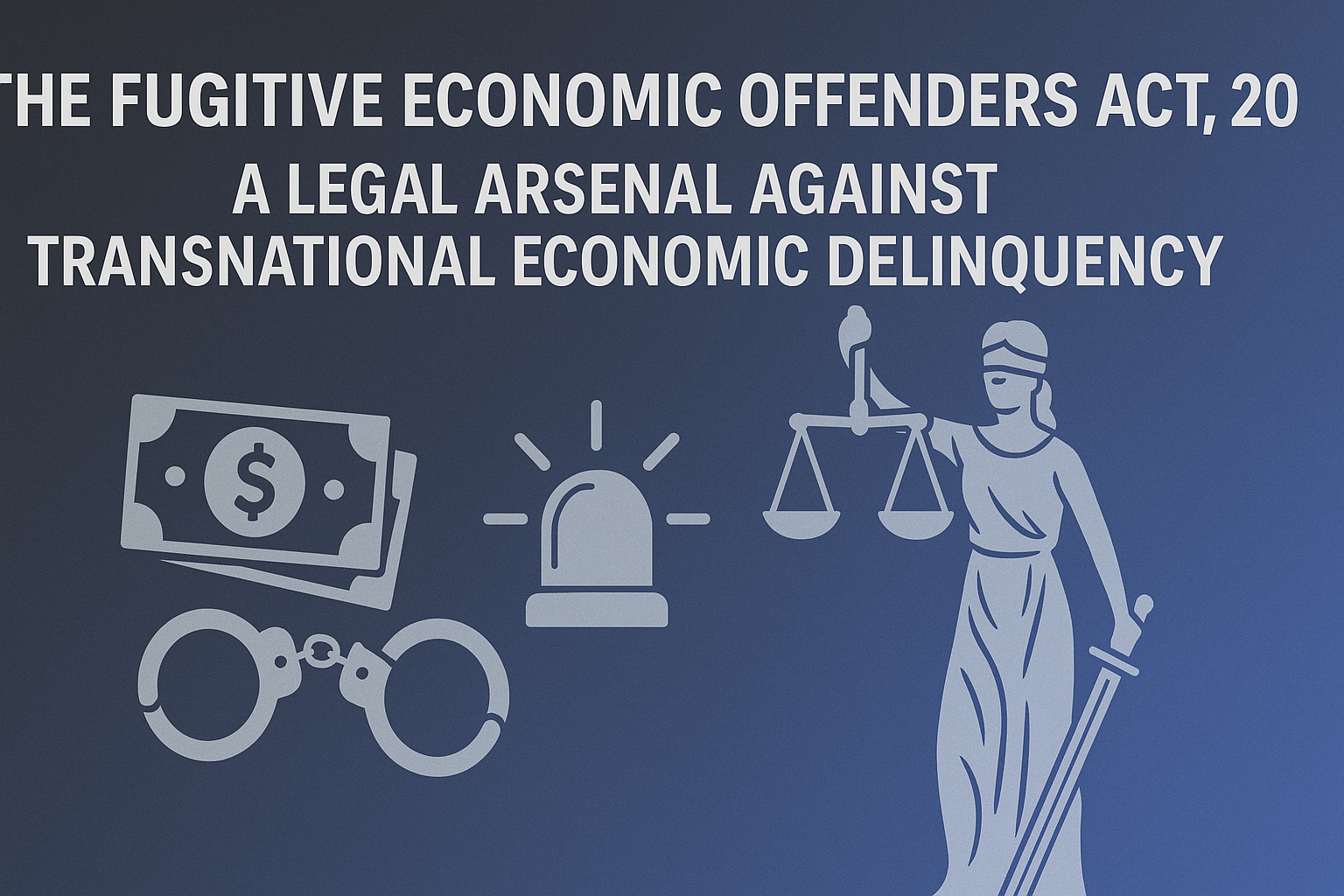The Fugitive Economic Offenders Act, 2018 (FEOA) emerged from a pressing necessity to combat the exodus of high-profile economic offenders who exploited legal lacunae to escape Indian jurisdiction. In a globalised financial ecosystem increasingly prone to complex frauds, the Act stands as a pivotal legislative initiative aimed at reining in wilful defaulters and economic fugitives. This article provides a critical exposition of the FEOA, examining its key provisions, judicial responses, and landmark cases such as those involving Vijay Mallya, Nirav Modi, and Mehul Choksi. It also analyses the constitutional challenges, the judiciary’s interpretative stance, and recent developments in international cooperation and enforcement.
In recent years, India has witnessed an alarming proliferation of economic offences involving colossal sums of money, most notably orchestrated by politically connected industrialists and financial elites. The exodus of offenders like Vijay Mallya and Nirav Modi exposed a gaping vulnerability in the Indian legal framework: the absence of an effective mechanism to bring back absconders and attach their assets even before securing a conviction. To arrest this trend and preserve the sanctity of the financial system, the Parliament enacted the Fugitive Economic Offenders Act, 2018, which received Presidential assent on July 31, 2018.
Genesis and Legislative Purpose
The FEOA was conceptualized following the public outcry over the absconding of several high-profile economic offenders. It aims to deter such actions by allowing the expropriation of properties of fugitive offenders without awaiting the outcome of a prolonged trial. The legislation derives its constitutional legitimacy from Entry 1 (Public Order) and Entry 30 (Criminal Law) of the Concurrent List, and was enacted under the pressing need to uphold the rule of law, ensure fiscal discipline, and enhance the credibility of Indian economic governance.
Historical Context and Legislative Evolution
The legislative foundations of the Fugitive Economic Offenders Act, 2018, can be traced to India’s increasing engagement with global financial networks post-liberalisation. Prior to 2018, India lacked a cohesive statute that directly addressed the menace of economic fugitives. Legal remedies were fragmented across the Code of Criminal Procedure, the Extradition Act of 1962, and mutual legal assistance treaties (MLATs), all of which were arduous, slow, and often ineffective. The necessity for swift asset confiscation arose after public outrage against high-profile offenders such as Lalit Modi and Jatin Mehta, who, much like Mallya and Nirav Modi, absconded abroad and resisted extradition processes. The FEOA was thus a culmination of multiple failed extradition attempts and a reflection of international best practices aimed at strengthening India’s economic deterrence capabilities.

